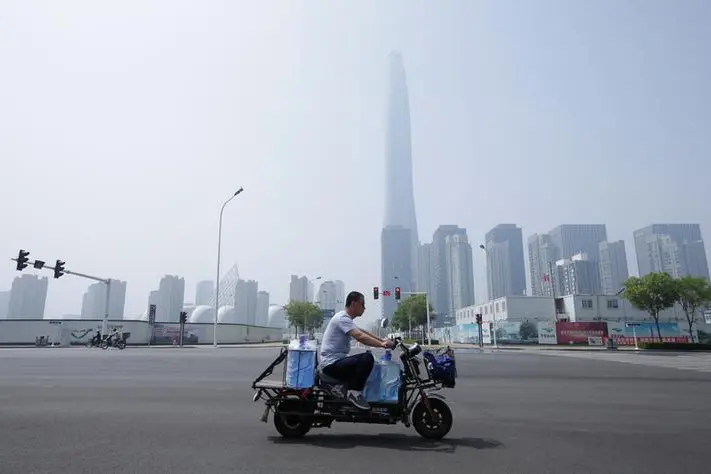PHOTO
BEIJING - China should tolerate a rebound in the overall debt level amid trade shocks and a slumping economy, and focus instead on curbing risks from more pressing issues such as the rapid build-up in household debt, a senior policy adviser said on Thursday.
Chen Changsheng, director general of the Macroeconomic Research Department of the Development Research Center (DRC) of China's State Council, said the macro leverage ratio had rebounded this year and was set to rise further.
"I want to tell you that this year's macro leverage ratio is definitely going to rise," Chen told a real estate forum in Beijing.
China's macro leverage ratio hit 250.3 percent in 2017 but had been steadily falling since the second quarter last year, Chen said, which was hailed by the government as a major policy success amid a drive to deleverage the debt-laden economy.
It dropped 1.5 percentage points in 2018, Chen Yulu, vice governor at the People’s Bank of China (PBOC), said in March.
But a prolonged trade war with the United States has dealt a much bigger blow to the economy this year, and policymakers must approach macro policy on the basis that it will be a long-haul battle full of uncertainties, Chen Changsheng said.
"We have seen that it is impossible for China and the United States to reach a deal at once; it would be punches and kicks with talks ongoing at the same time. And basically you can't see any logic on the U.S. side in this battle," he said.
Instead of being too caught up about the absolute level of the macro leverage ratio, Chen said he had advised authorities to take a targeted approach focusing on containing the biggest debt risks, especially in the household sector.
"From my perspective, the current risks in the household sector, which has seen its macro leverage rising rapidly, is even bigger than the highly leveraged corporate sector," he said.
The government should address the risks of a rebound of disguised loans flowing to the real estate sector.
"If the overall risk is smaller, even if the macro leverage ratio is at 255%, it would be better than when it was 250%," he said.
(Reporting by Yawen Chen and Ryan Woo Editing by Robert Birsel) ((yawen.chen@thomsonreuters.com; +86 10 6627 1207; Reuters Messaging: yawen.chen.thomsonreuters.com@reuters.net))





















